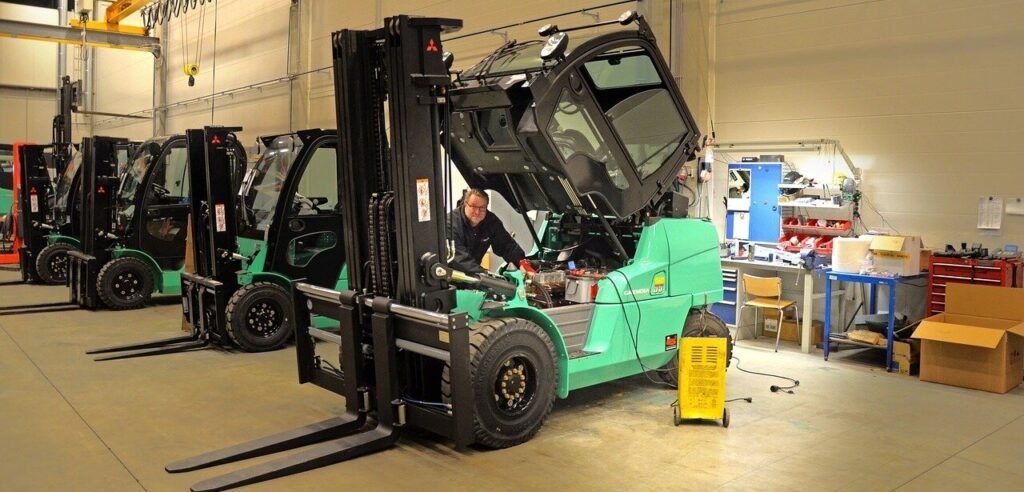The forklift industry requires a particular technician to troubleshoot and repair mechanical, hydraulic, and electrical systems. This hardworking, specialized position is vital to keeping material handling equipment running and available to businesses nationwide.
Forklift mechanics typically work Monday-Friday and don’t have to deal with the rigors of an automotive mechanic career. Read more to learn how to get your foot in the door of this rewarding field.
How to Become a Forklift Mechanic
Forklift mechanics must be able to repair, troubleshoot, and maintain various forklift trucks. They are also responsible for completing safety inspections and ensuring that all equipment meets the proper standards to be returned to service.
Depending on the type of forklift, some mechanics may need certification from the manufacturer or an independent training provider to ensure they are familiar with the operating and maintenance techniques for specific types. For example, a forklift technician working on a scissor lift must obtain an OSHA certification to ensure they know the correct and safe way to operate this machine.
Certified forklift mechanics can be found at material handling dealerships across North America. Often, these positions offer 1st shift hours so mechanics can reclaim their nights and weekends for personal activities. This is an excellent Welch Careers choice for those who enjoy work/life balance and want to work on different types of machinery.

Education and Training
As the forklift technician industry grows, so do opportunities to receive education and training. Some forklift technicians attend vocational schools specializing in automotive mechanics, while others obtain an apprenticeship or entry-level position with a qualified professional. Obtaining a certification through the Association of Service Excellence is also one way to improve job prospects and earn a higher salary.
Regardless of your route to becoming a forklift mechanic, focusing on practical abilities and gaining hands-on experience in the field is essential. Employers usually place more importance on these qualities than a formal educational background, as you can learn a lot from working around skilled professionals and absorbing knowledge as you go.
Mechanics must be able to think through the different components of an issue and determine which solution will provide the longest-lasting result for their customers. They should be able to explain technical topics so that anyone can understand and have good analytical skills to identify problems quickly and make necessary adjustments.
Job Duties and Responsibilities
A forklift mechanic performs maintenance and repairs on a truck’s mechanical, hydraulic, and electrical systems. This includes examining the engine, repairing or replacing the brakes and suspension, and checking for structural damage to the vehicle. They also inspect the battery and propane tanks on electric forklifts. Jobs for diesel mechanic responsibilities include testing the equipment and maintaining work order logs.
Diesel mechanics need to communicate technical concepts to customers in a way they can understand. They must be able to read and follow written work orders and inspection procedures. They must also have excellent attention to detail, as even a tiny component misalignment can affect performance and cause problems.
Mechanics may work on both diesel and gasoline-powered vehicles. They use a variety of hand tools and power tools, including screwdrivers, pliers, wrenches, and pressure gauges. They may lift vehicles using hydraulic jacks or hoists.
Salary
Forklift technicians are responsible for maintaining and repairing various forklift components. They diagnose mechanical and electrical issues, complete preventative maintenance, perform reconditioning, and train junior technicians. They also use various tools, including diagnostic software, power tools, and hand tools such as pliers, sockets, and ratchets.
These technicians can work independently at material handling dealerships depending on their qualifications and preferences. Those who work at a dealership often receive standard benefits like medical, sick, and vacation time.
Those who choose to be self-employed may require more investment in equipment or certifications to become qualified for a specific type of work. Still, they are open to geographic boundaries and can earn more per hour as independent mechanics. These workers typically have a higher level of technical skills and more experience.